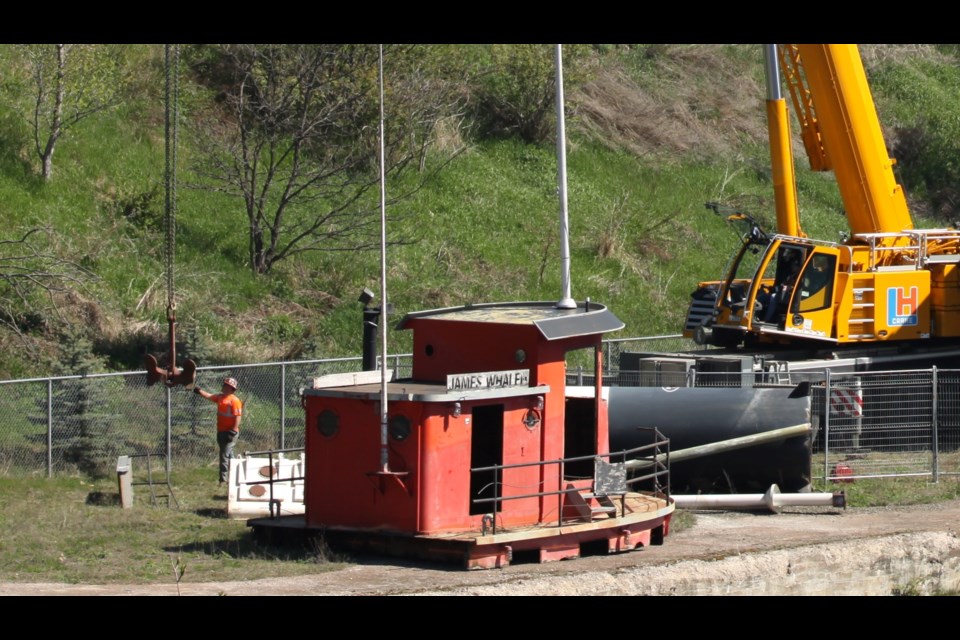THUNDER BAY — It's still possible that some pieces of the James Whalen tug boat will be preserved.
The company hired to recycle the vessel has agreed to let the Thunder Bay Transportation Museum take some parts of the 120-year-old boat, museum chair Wally Peterson told Newswatch on Monday.
The details are yet to be decided, but Peterson said he is proud to announce that parts of the vessel might be saved for display at the museum.
“We have been in contact with Marine Salvage and they are willing to allow us to get some of the parts of the James Whalen, and we are going to be meeting with them next week when the owner comes into town, so we can finalize what and how we are going to do it,” he said.
The museum is not yet sure what parts of the tugboat they will be able to keep, said Peterson. The dismantling process is already underway, with southern Ontario-based Marine Recycling Corporation’s crew doing the work.
“We are hoping to get all of it, but you know we can't do that,” he said. “The potential is we are looking at getting the wheelhouse with the captain's quarters, the stack, and basically the pieces that the city was looking at the low-end scale of the salvage.”
At nearly $580,000, the cost just to scrap the tug exceeding estimates and council voted to recycle the whole boat without saving any part of it.
Artifacts from the boat will be held in safekeeping until the museum can renew its lease with the city and bring the parts back to their Pool 6 site, said David Muir, museum vice president of operations.
The museum will be holding fundraising to support the acquisition of the James Whalen parts, said Muir, though events, auctions and 50-50 draws.
Their recent Raisin’ Whalen dinner raised several thousand dollars for the tugboat, said Peterson. And they are working with many partners to help preserve as much of the boat as possible.
“We want to save the history of transportation,” Peterson said.
“That is the reason this town exists. If it wasn't for the grain trade coming in with the railroad, the grain elevators, and the grain going out by ship, this town really wouldn't exist.”
